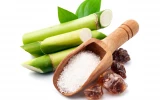Do Queen Bees Eat Honey & What Else?
The life of bees easily piques the interest of many people because of their weird habits that seemed questionable for humans. One question you might have in mind is whether queen bees eat honey and what other food sources they consume. Let me help you uncover the truth about the diet of queen bees through this article.
Adult queen bees do eat honey along with a diverse diet of other substances such as nectar and pollen, which provide essential nutrients for their health and longevity. A developing queen bee is fed exclusively with royal jelly. Queen bees can't feed themselves so they rely on attendant worker bees to feed them.
In the next sections, I'll explain how each of these food sources contributes to the well-being of a queen bee and why their nutrition is important to the overall health of the colony.
Summary
- Queen bees consume honey as part of their nutrition and as a source of energy.
- Queen bees feed on nectar for carbohydrates, while they feed on pollen for protein sources.
- Royal jelly makes up most of the queen bee's diet, especially the young queen larvae.
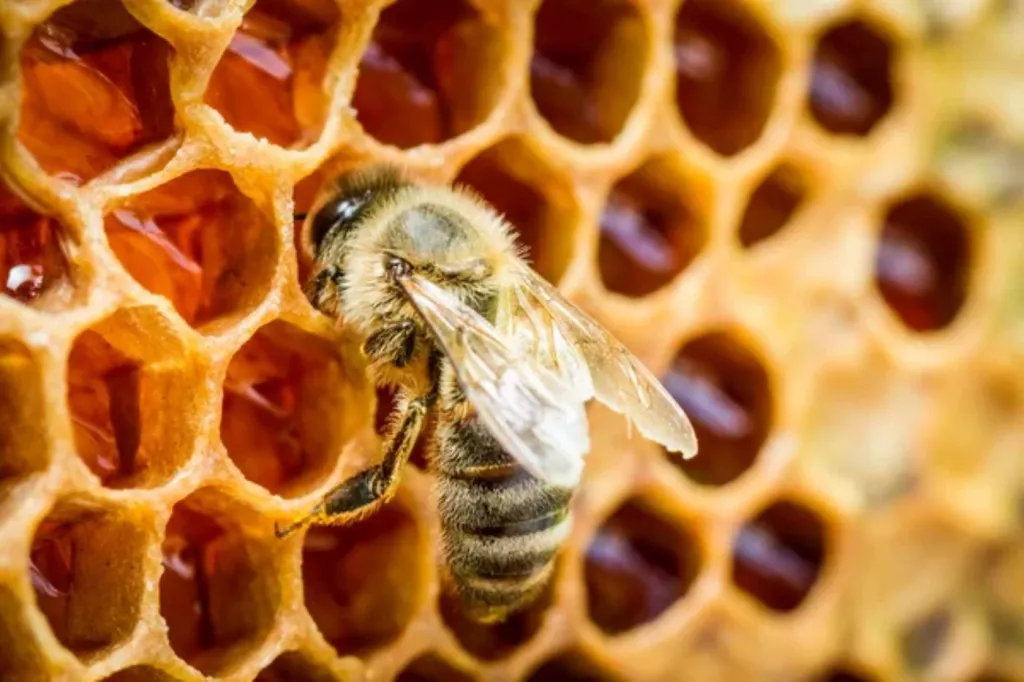
On this page:
Queen Bees Eat Honey
To make a strong and productive colony, you need a healthy queen bee. But to keep it healthy, it must get sufficient nutrients from the food it consumes.
Adult queen bees consume honey as their primary source of nutrition, along with a diverse diet of other substances. It can be combined with either pollen or nectar to keep it balanced.
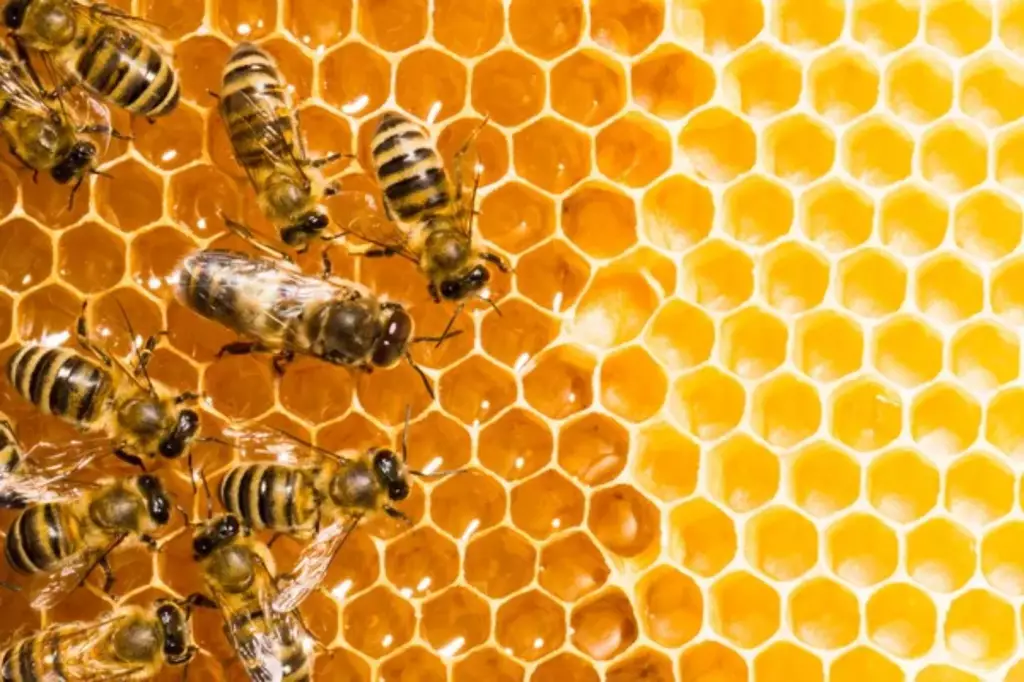
Since honey is mainly composed of glucose and fructose, it acts as the main energy source of queen bees to help them stay active in performing their major roles in the hive.
One of the major roles of the queen bee is to lay eggs. Interestingly, they can lay up to 2,000 eggs per day. This number can reach up to tens of thousands per day during peak season as she holds the responsibility of producing the colony's next generation of worker bees and drones.
But aside from this, the queen bee is also responsible for maintaining harmony within the hive, helping to regulate the behavior of her colony members, by producing a special chemical called “pheromones”.
Both reproduction and pheromone production requires a lot of energy, and honey provides a quick and easy source of fuel for the queen bee to perform these roles adequately.
Queen bees are also known to consume honey because it contains royal jelly. It is a special food produced by worker bees specifically for the queen bee. Royal jelly contains high levels of proteins, amino acids, and other nutrients that help the queen bee to develop and maintain her reproductive organs, and to produce healthy eggs.
It's worth noting that the queen bee doesn't partake in other hive activities like foraging for nectar, or pollen, or even taking care of herself. Instead, worker bees tend to these duties and ensure the queen is well-fed and cleansed.
Queen Bees and Their Other Food Sources
As you may have wondered, adult queen bees do consume honey as their primary source of nutrition. However, they eat more than just honey. In fact, their diet consists of a combination of honey and nectar, which their attendants feed them in a pre-digested form, passing the mixture mouth-to-mouth in a process called trophallaxis.
For the queen to stay healthy and live a long life, she needs to consume a well-balanced diet containing adequate amounts of proteins and carbohydrates. Summing up, the diet of queen bees consists of the following:
Pollen as a source of protein
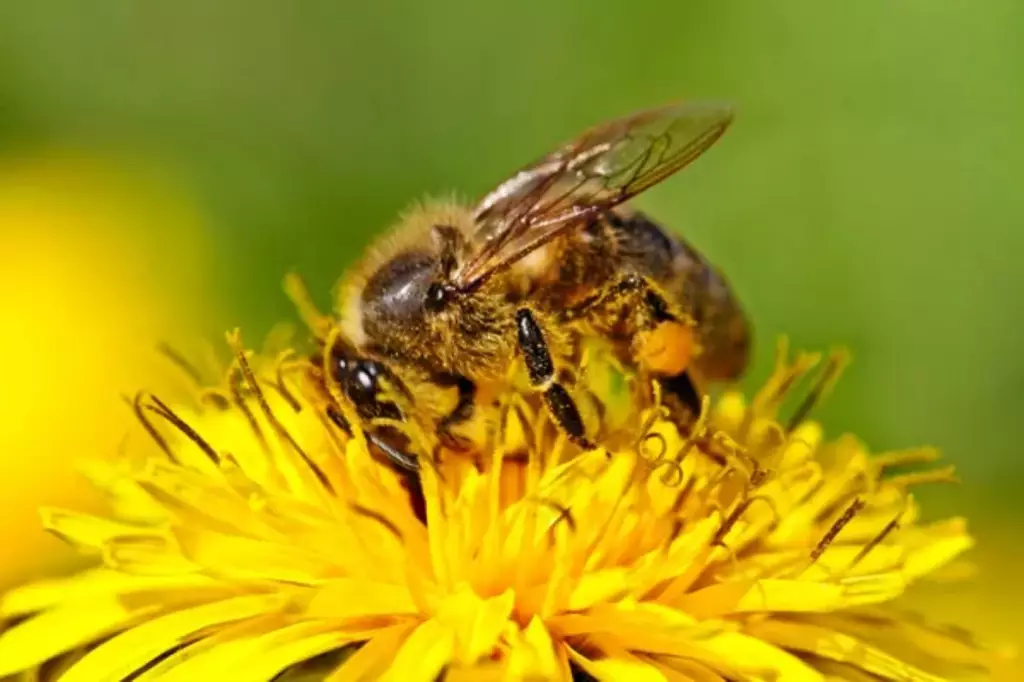
Queen bees can consume pollen as a rich source of protein and other nutrients. They need pollen to maintain their health and productivity. Pollen is collected by worker bees from flowers and brought back to the hive.
Nectar as a source of carbohydrates
While nectar is primarily used by worker bees to produce honey, queen bees can also consume it for its nutritional value. This sweet liquid serves as a source of carbohydrates for the queen.
Royal jelly as the exclusive diet of young queen bees
Although adult queen bees also consume royal jelly, their diet is already mixed with other substances such as honey, nectar, and pollen. Whereas developing queen larvae, their diet is comprised of 100% royal jelly.
Royal jelly is a creamy white substance that has a high concentration of proteins, vitamins, and minerals which contribute to the development and maintenance of the queen bee's reproductive system.
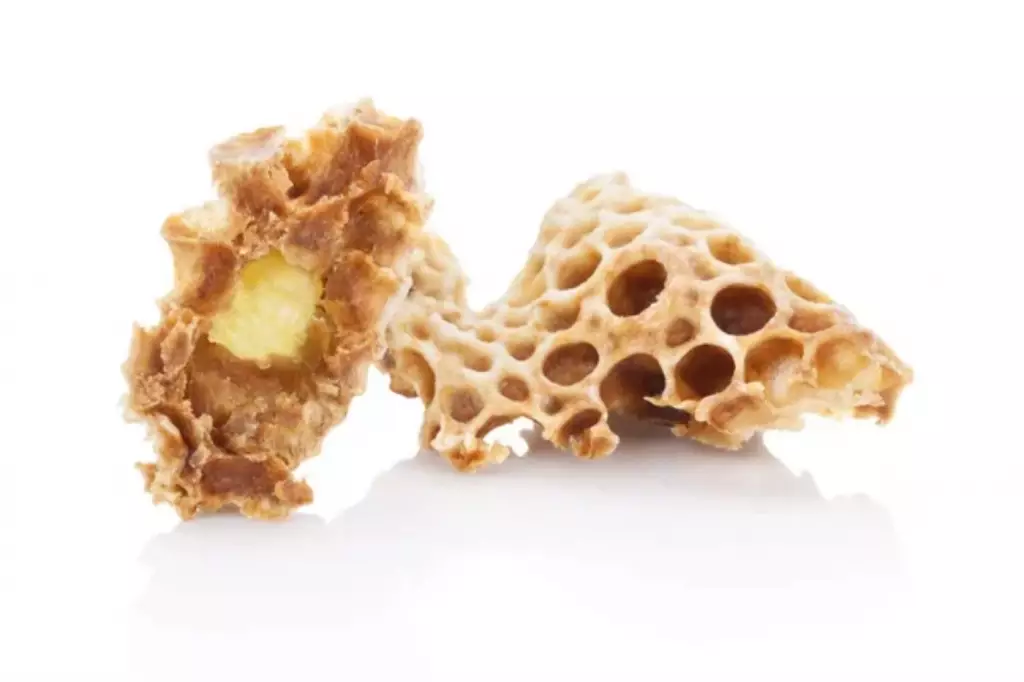
This substance is also responsible for her larger size and longer lifespan which set them apart from worker bees. Royalactin, a component of royal jelly, is thought by researchers to be the protein that defines a queen bee.
Even though adult queen bees can obtain nutrition from these sources, royal jelly remains as their primary food source, apart from honey.
Importance of Queen Bee’s Nutrition to Colony Health
As an essential member of the hive, the queen bee's nutrition plays a critical role in maintaining the colony's health. When you focus on the health of the queen bee, you’ll find that your hive can survive longer and grow healthier.
I have listed a few reasons below why queen bee nutrition is important for colony health:
- Reproduction: The queen bee is responsible for laying all the eggs in the colony. She needs a healthy diet to produce high-quality eggs and maintain her own reproductive health. If she is underfed, her reproductive abilities may reduce.

-
Colony Growth: The queen bee's eggs are the foundation for the colony's growth. If the queen is not healthy or well-fed, she may not lay enough eggs to support the colony's growth.
-
Disease Resistance: A well-fed queen bee is more resistant to disease and parasites. This is because she has a stronger immune system and can produce healthier offspring. If she doesn't get enough nutrients, she will be more prone to diseases, and her disease can spread throughout the colony easily.
-
Honey Production: A healthy colony with a strong queen bee is more productive and can produce more honey. If your colony has a poorly fed queen bee, your hive may not produce as much honey which can be detrimental to their survival, especially during the winter season. At the same time, you could be affected by their low honey production as your harvest will also be low.
-
Colony Organization: When the queen bee receives adequate nutrition, it also helps in producing pheromones that serve as a social "glue" unifying the colony.
-
Pollination: Honey bee colonies are important pollinators for many crops. A healthy colony with a strong queen bee can provide better pollination services.
Underfeeding the queen bee can have serious consequences for the health and productivity of the entire colony. She may become weak and unable to perform her duties which can lead to queen failure and the eventual collapse of the colony. She may fall sick and die which can set your hive in disarray.
Aside from this, bees without a queen tend to act irrationally. In some scenarios, they will swarm even without a queen. If you don’t like that happening to your hive, you have the responsibility as a beekeeper to ensure that the colonies have access to a diverse and nutritious diet.
Think of this as an investment in the ongoing health and productivity of your queen bee and the entire colony, which will ultimately benefit you and the environment.
